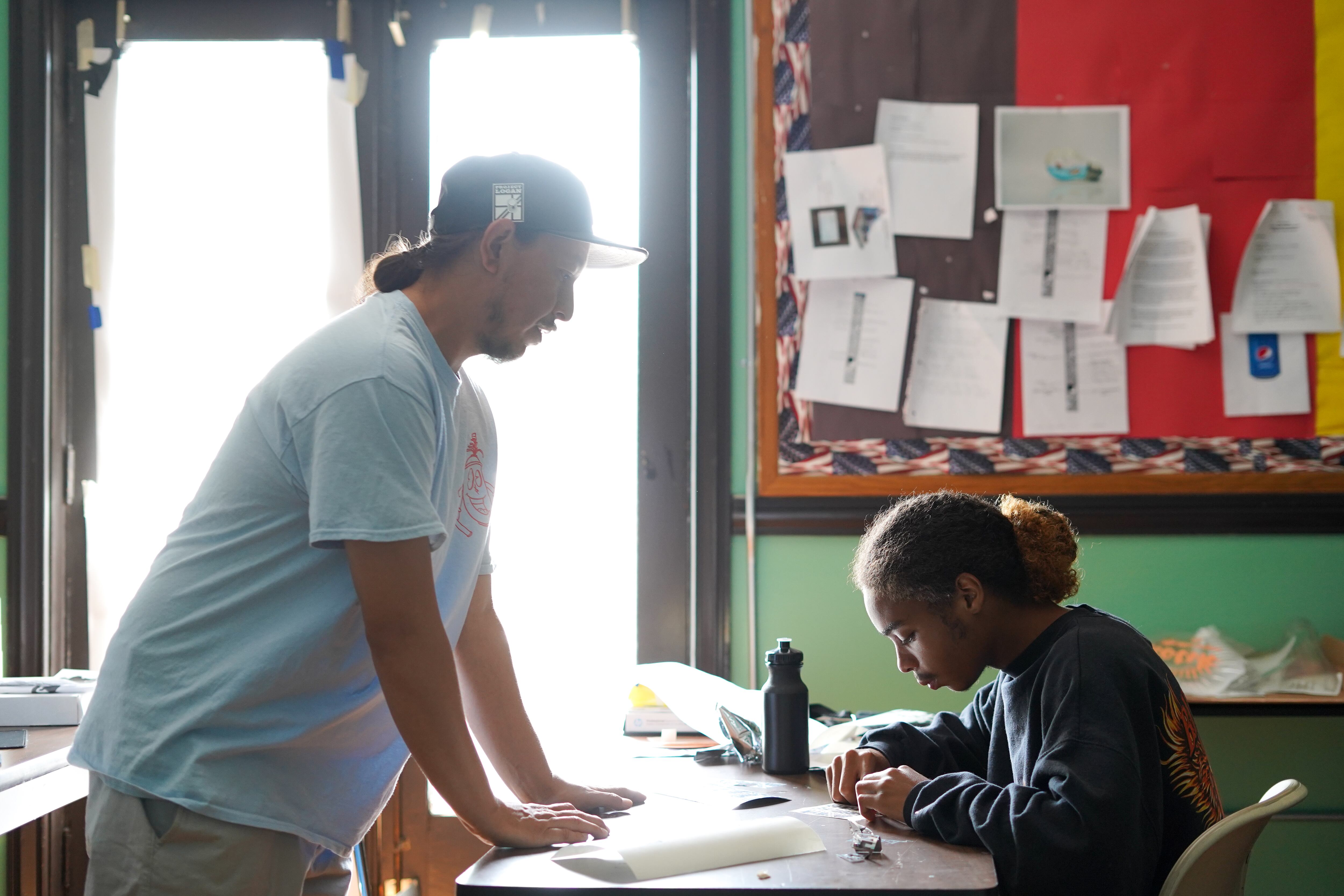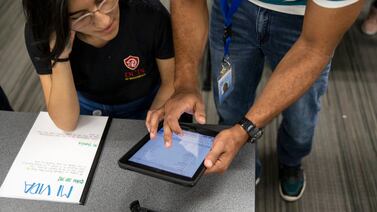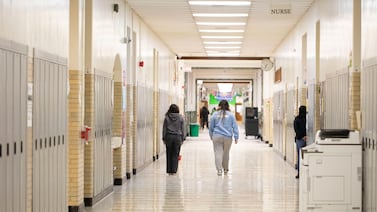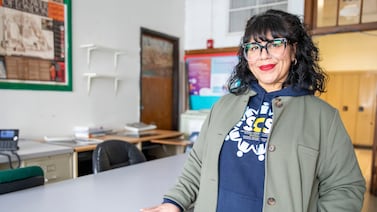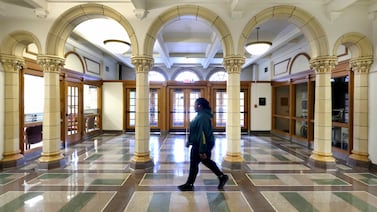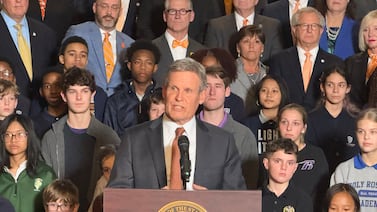Treasa Howard-Collins loves her job at Joliet Township High School’s Child Care Center, but despite having 12 years experience and a master’s degree, she says she’s “earning an unlivable wage.”
“Not only am I working a second job, but I’m also doing gig work to supplement the income for the job that I love,” Howard-Collins told state officials during a budget hearing Tuesday.
Howard-Collins and several other speakers want the Illinois State Board of Education to increase funding for early childhood education by 20% – or $120 million – to increase wages for early childhood educators.
Throughout the hearing, school leaders, educators, parents, and advocates pushed for an increase of about $700 million — $120 million for early education and $550 million toward K-12 schools — to the state’s overall education budget for fiscal year 2024, which starts in June 2023. The state education budget supports early education, K-12 public schools, after-school programs, and agricultural education.
Lawmakers approved $9.7 billion for the state’s education budget in the spring with $350 million more dollars heading toward K-12 public schools and $54.4 million dollars toward the state’s early childhood block grant.
State law calls on the legislature to increase K-12 funding by $350 million annually by 2027 to get every school district to “adequacy,” or ensure that schools have enough funding to provide resources to students. Since the funding formula was created in 2017, it has resulted in an increase of $1.5 billion overall.
And while advocates applauded new funding in education, many said the state’s funding formula should increase by at least $550 million dollars this year in order to correct funding gaps more quickly.
Summer Butler, an elementary school teacher at Bellwood School District 88, said that her school is considered 70% “adequately funded,” according to state data. But her school is understaffed and overflowing with students.
Butler said that her students aren’t excelling in core subjects like math and reading, with about 14% meeting math and reading proficiency standards.
Butler noted that astronaut Eugene Cernan, commander of the Apollo 17 that went to the moon in 1972, attended her school in the 1940s.
“At this rate, we might not ever have another Eugene Cernan among us any day soon, because we don’t have all of the necessary resources to make that possible,” she said.
Bob Chikos, an educator at Crystal Lake Central High School in District 135, also asked for an increase of $550 million in K-12 funding because he wants to end funding disparities between school districts. He pointed to differences in funding between his district, which is 77% funded, nearby Elgin’s U-46, which is 63% funded and below adequacy, and Libertyville High School in District 128, which is 171% funded — far above adequacy.
“Disparities, such as this, have exacerbated educational, racial and wealth gaps. We live in a state in which there’s a resource race amongst adequately funded districts to offer the best education possible,” said Chikos. “While not adequately funded, districts try to hold on to the minimal resources they have to meet their students’ needs.”
Last week, Partnership for Equity and Education Rights, PEER IL, and the Education Law Center asked the state to increase funding for the evidence-based funding formula by $1.5 billion a year to hit the 2027 goal written into law.
While a majority of speakers asked the state to increase funding for early childhood education and K-12 public schools, a few speakers asked the state to boost funding to after-school programs and community schools.
Susan Staton of Afterschool for Children and Teen, ACT Now, and other advocates requested $20 million dollars for after-school programming and $15 million to go toward community schools.
“These programs all throughout Illinois are improving attendance, improving grades and helping to teach social-emotional learning skills,” said Stanton.
The state board of education is planning to host two more budget hearings. One will be held in person at 4 p.m. Thursday at the state board’s office in Springfield, Illinois, and the other will be virtual at 4 p.m. Oct. 24.
In previous years, the state board of education announced its recommendations for the education budget during its December board meeting. The board then sent its proposal to the governor and legislature in January. The governor then made a budget proposal in early February and the legislature approved the budget by the end of spring legislative session in April.
Samantha Smylie is the state education reporter for Chalkbeat Chicago, covering school districts across the state, legislation, special education, and the state board of education. Contact Samantha at ssmylie@chalkbeat.org.

